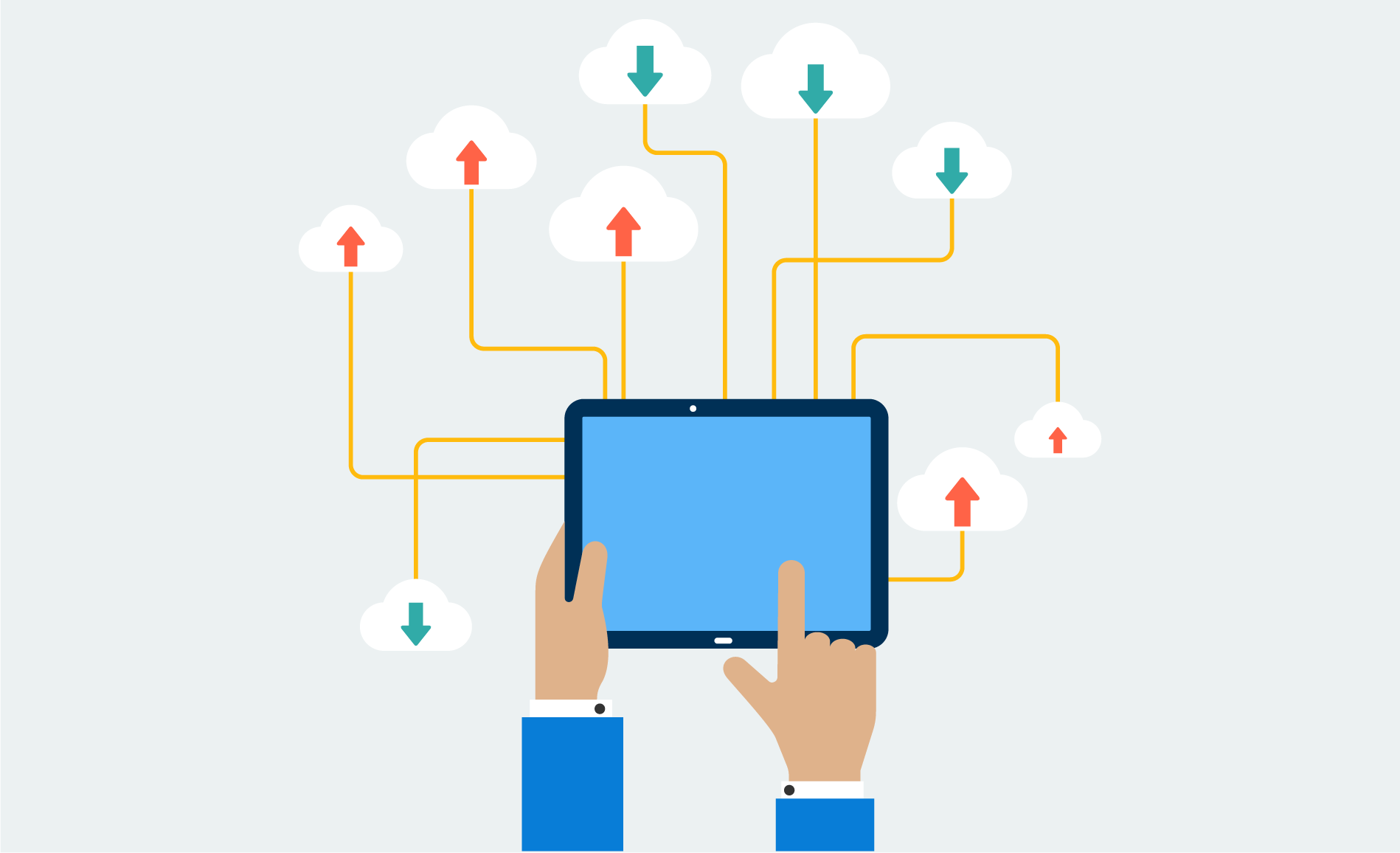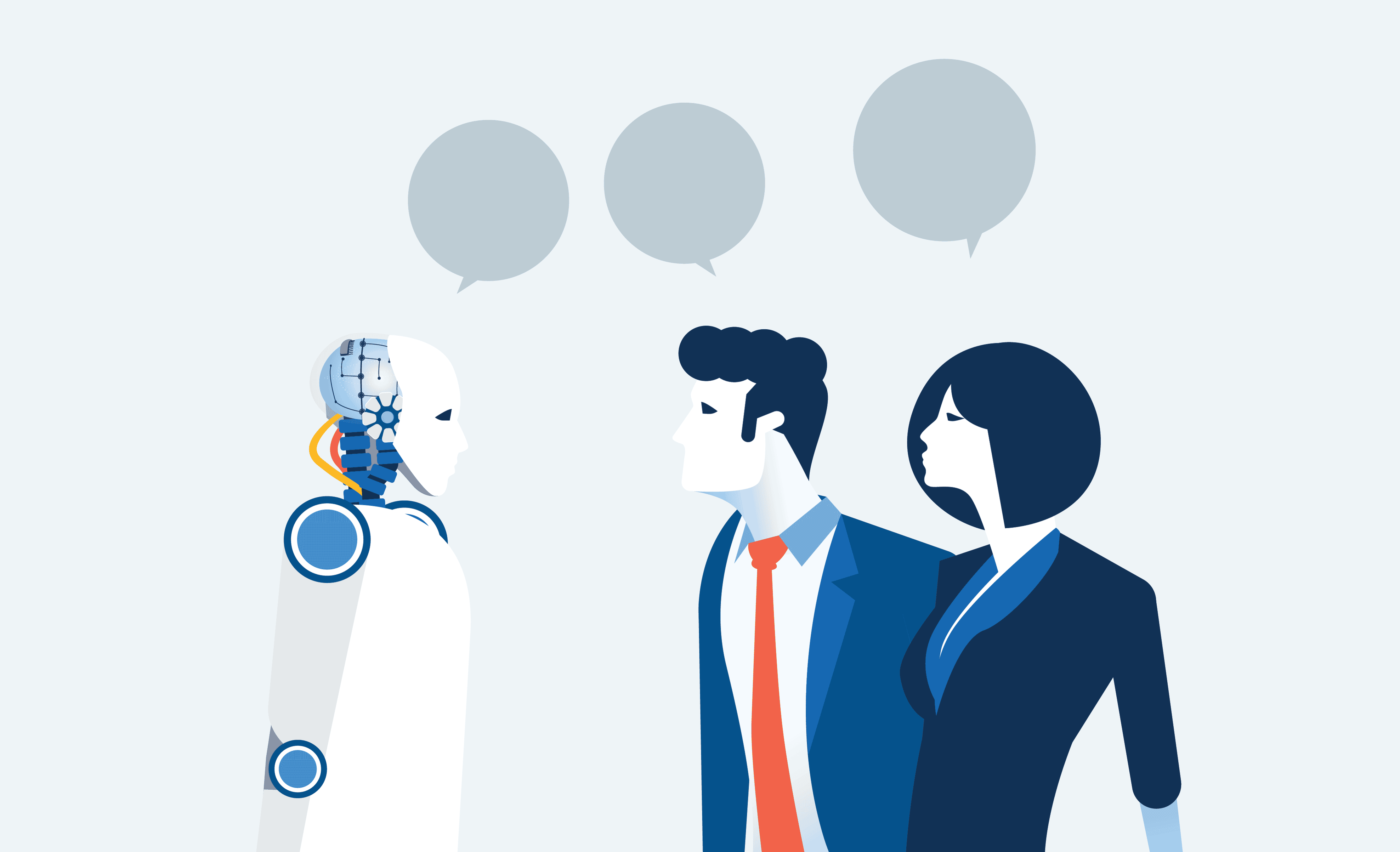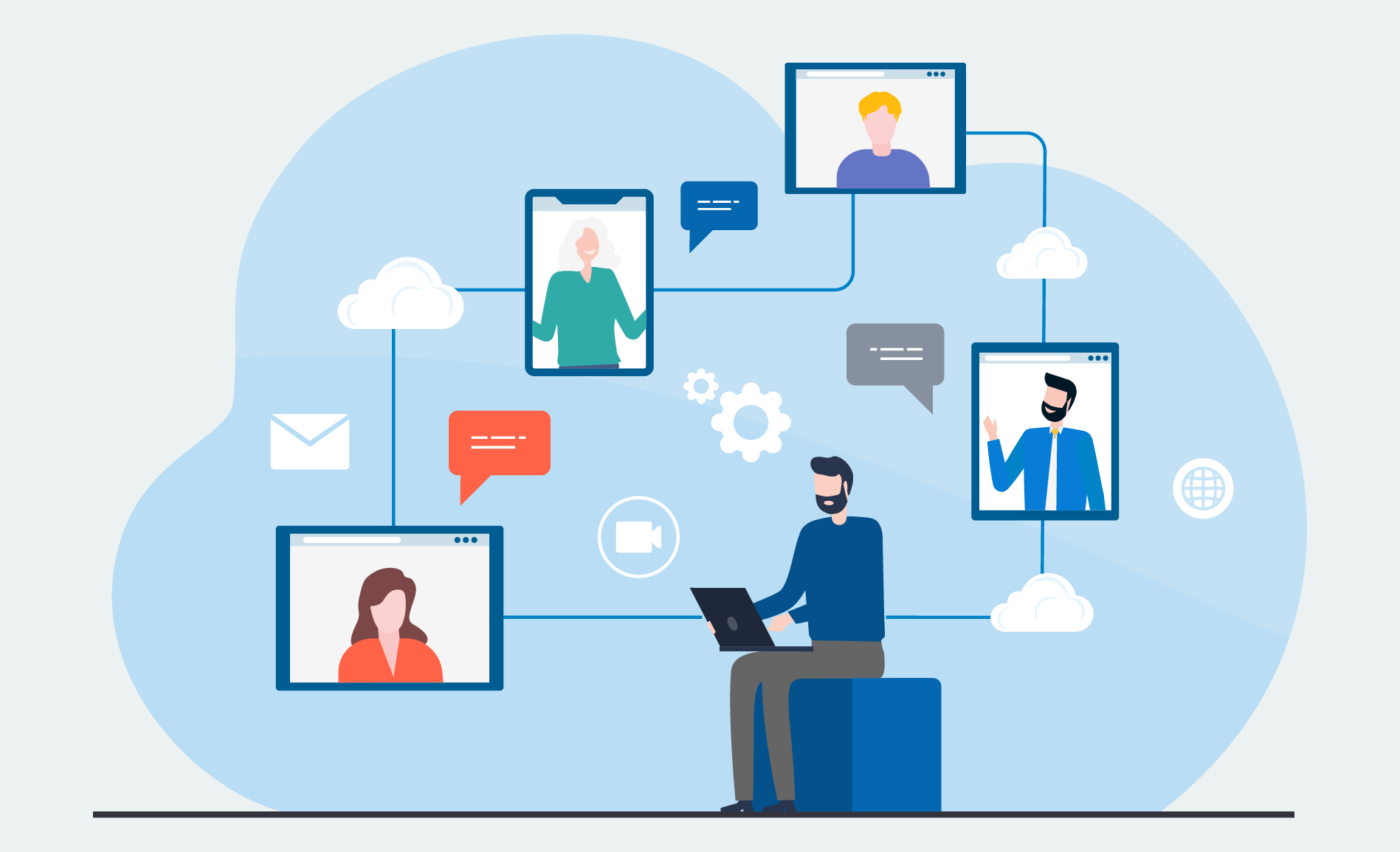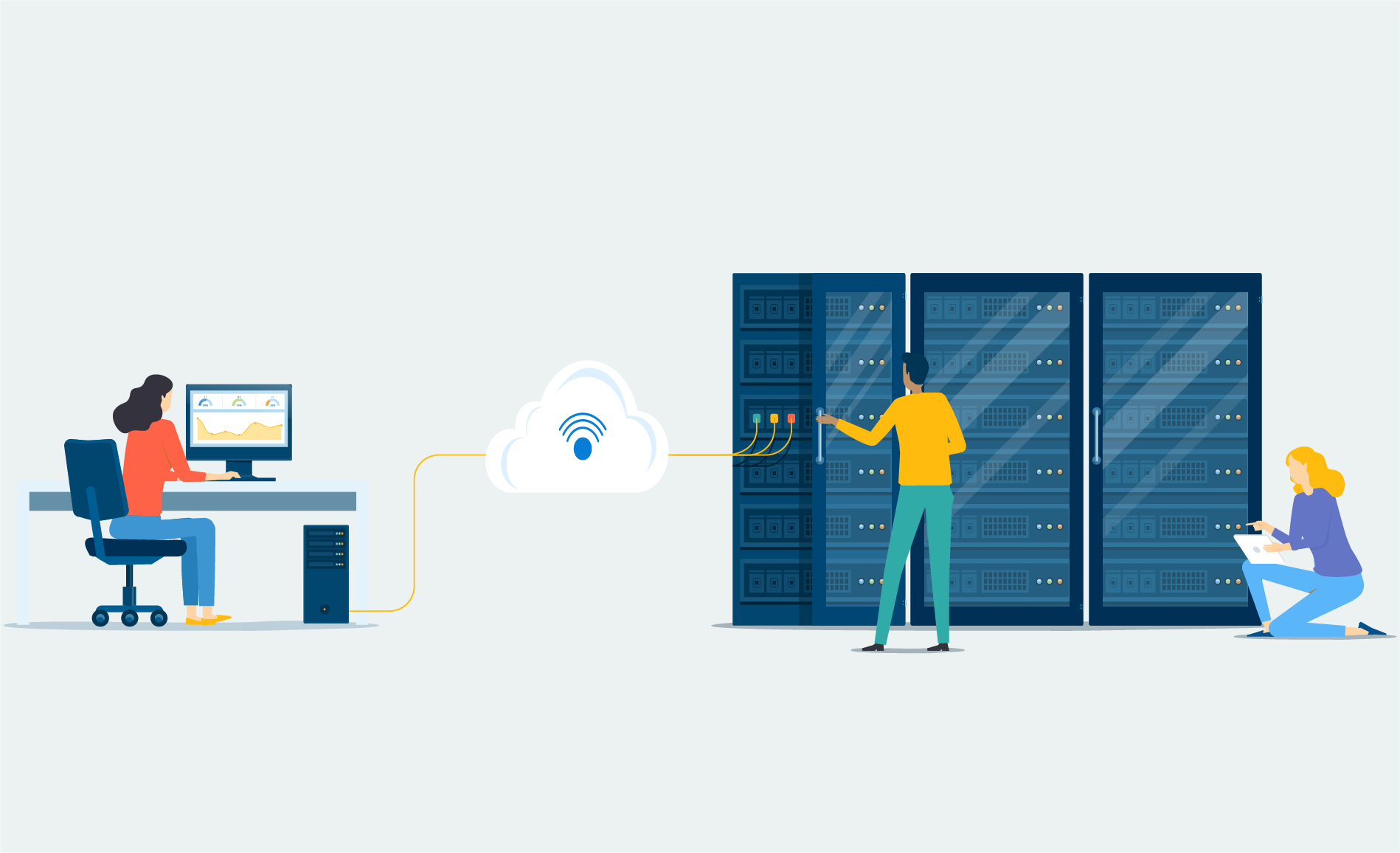Artificial Intelligence development is becoming increasingly prevalent in our technology landscape. But, how do we ensure that we’re designing and using AI in a responsible and ethical manner?
This is just one of several questions that Brad Smith, President and Chief Legal Officer of Microsoft, asked in his recent corenote speech at Microsoft Inspire 2018. It’s true that Artificial Intelligence development has come a long way in such a short period of time, but if we’re to make this technology into a helpful partnership between humans and computers, it’s time to start really thinking about the future of AI, and how it will impact our lives.
If we’re to make #ArtificialIntelligence into a helpful & successful partnership between humans and computers, we need to really start thinking of the future of #AI & how it will impact our lives.
In this blog, we’re going to look at some of Mr. Smith’s suggestions for the future of technology using Artificial Intelligence development. Read along for his expert opinion on where we’re going and what we need to do to get there.
What is Artificial Intelligence?
A lot of science fiction portrays machines that think in a negative light – whether it be servant robots taking over because humanity is deemed a threat to their own existence (like in I, Robot), or those menacing futuristic cyborgs, acting under the power of a central network that humans built, that succeed in terminating almost all of humanity. But, science fiction aside, what exactly is Artificial Intelligence?
In their recent book, entitled The Future Computed: Artificial Intelligence and Its Role in Society, Microsoft defines Artificial Intelligence as “a set of technologies that enable computers to perceive, learn, reason and assist in decision-making to solve problems in ways that are similar to what people do.”
Science fiction aside, what exactly is #ArtificialIntelligence? Microsoft’s definition of #AI is “a set of technologies that enable computers to perceive, learn, reason & assist in solving problems similar to how people do.
Cortana, Alexa, and Siri make use of speech recognition and machine learning technology to feed us information that we ask for. Nest’s next-level thermostats uses behavioural analytics to learn your specific heating and cooling needs. Netflix’s predictive technology provides you with a list of potential shows or movies to watch next, based on what you just finished watching. Your iRobot Roomba detects what rooms need to be cleaned, cleans around furniture, boxes, or pets, avoids stairs, and plugs itself back in when it needs to recharge.
These are just some examples of AI at its most basic level. With the way that technology is advancing, computers are going to be able to do more and more and more, which leads to a very important question that Brad Smith brings up in his corenote speech: the question is not what computers can do, but what computers should do. Let’s take a look at this question in the next section, where we’ll discuss the ethics of Artificial Intelligence.
The Six Principles of Artificial Intelligence Development (According to Microsoft)
Brad Smith’s corenote discusses how important it is to have a global conversation about the development of Artificial Intelligence. We know that the possibilities for advanced AI are there. But, how do we want to decide what computers should do?
As Smith mentions, it’s our responsibility to chart the path and the future for artificial intelligence, and, therefore, it’s vitally important that this work is guided by a series of ethical principles. In their book, Microsoft lays out six ethical principles that they consider the most important when developing AI:
Fairness
We need to understand how our bias can affect AI systems, and ensure that any future AI systems treat everyone with the same level of fairness, regardless of race.
Reliability
An AI system needs to be reliable enough to operate and evolve as programmed, with safe responses to unanticipated scenarios (in other words, no V.I.K.I. or Skynet).
Privacy & Security
Privacy is, of course, paramount for any AI systems that are created. They must comply with current privacy laws, and must be protected from theft.
Inclusiveness
We need inclusive design practices that don’t intentionally exclude people from receiving or accessing the product or solution.
Transparency
We need to provide valuable contextual information on how these AI systems are operating and being designed, so people can understand and identify potential bias, errors, or unintended outcomes.
Accountability
The AI must be accountable to humans, and the people designing the AI systems need to be accountable to other humans, to ensure that they are being held accountable for how that AI is being developed and how it’s going to interact with humans.
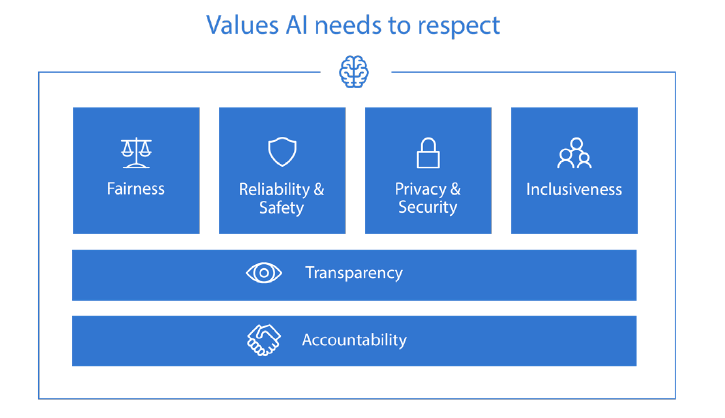
Ultimately, as Smith says, AI needs to be “human-centred”, or designed in such a way that human ingenuity and capabilities are augmented by the technology. In order to ensure this, continuing collaboration on a global scale is necessary – government, business, civil society, and academia need to come together to create the human-centred AI of the future.
Artificial Intelligence development is not something that needs to be feared. But the field does require plenty of planning, global conversation, and careful consideration before we get too far ahead of ourselves and do something that can’t be reversed.
#ArtificialIntelligence isn’t something we should be afraid of. But we do need planning, global conversation, and careful consideration before we get too far ahead of ourselves and end up doing something irreversible.
Developing Artificial Intelligence In Your Organization
An important conclusion that can be drawn from Microsoft’s book is that the companies and the countries that are going to fare the best in the era of Artificial Intelligence is those who don’t shy away from this natural progression. That is to say, Microsoft believes that new jobs and economic growth will come to those organizations that are able to embrace Artificial Intelligence and implement it in their organization. The faster you implement, the better you’ll do.
The AI that’s currently out there has proved to have enhanced human productivity and collaboration in many ways. Windows 10, Cortana, and Office 365 are already using AI-enhanced capabilities to improve our security and our productivity. Interested in learning how you can implement or take advantage of this AI in your organization? Shoot us an email and we’ll be happy to have a conversation with you on how you can get started! Also, stay tuned to our blog page – we’ll have more content on this topic coming up.
